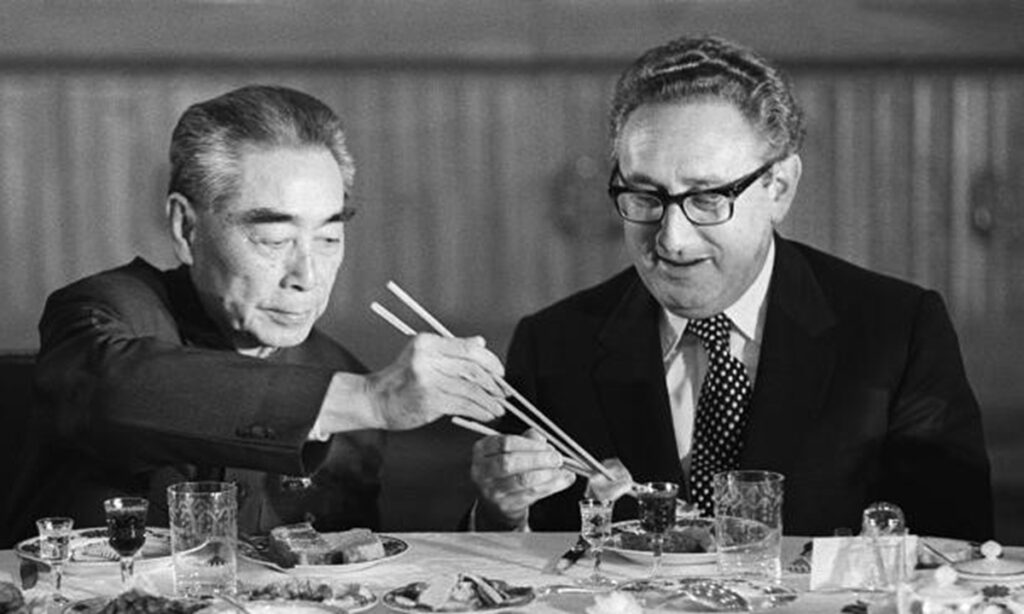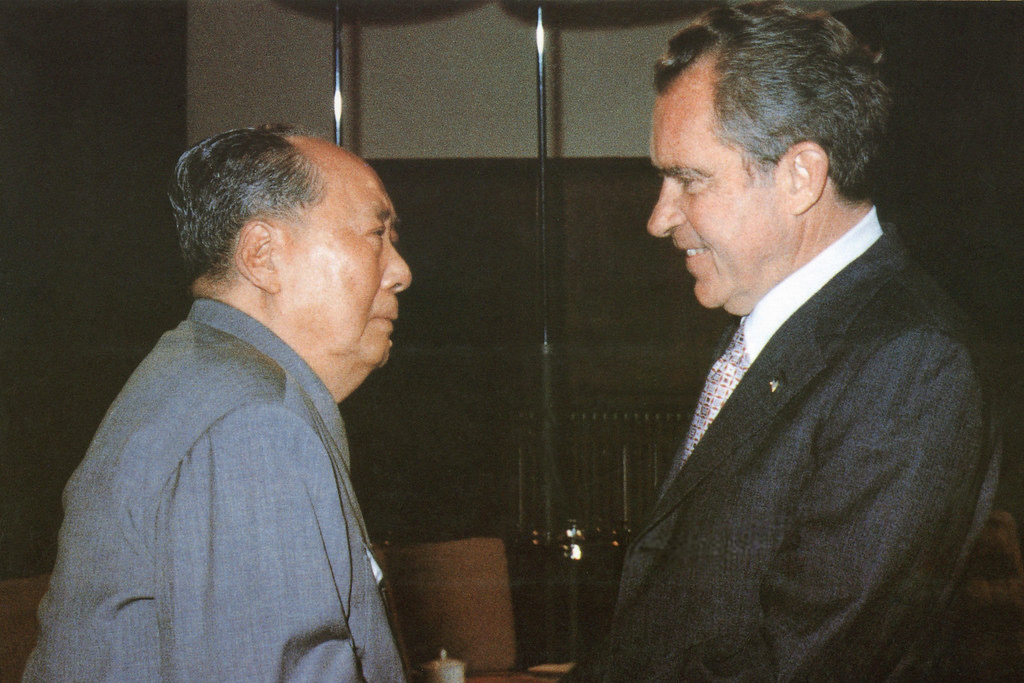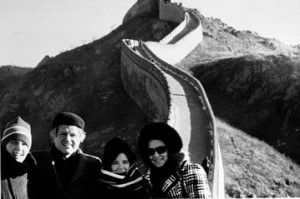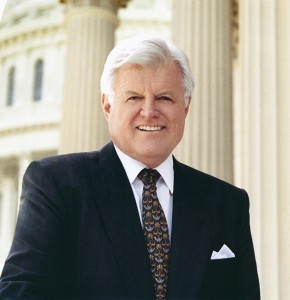Was it really Kissinger who changed US-China policy?

With Henry Kissinger’s death last month at the age of 100, obituaries around the globe have wrestled with his controversial legacy. Some label him a diplomatic genius, others a war criminal. But regardless, each one credits Kissinger with re-setting U.S.-China relations with his secret trip to China in July 1971 while serving as President Richard Nixon’s National Security Adviser. Six months later, Nixon would make his historic visit to Beijing, meet Chairman Mao and essentially end the Cold War between China and the U.S. “Engineered the United States’ opening to China,” The New York Times wrote about Kissinger last month; “the orchestrator of Washington’s opening to communist China,” noted The Guardian in its obituary; “a key figure in China-US icebreaking in 1972,” claimed The Global Times the day after his death; and “the impresario of Nixon’s historic opening to China,” stated The Washington Post.
But was he? Was Kissinger the brains behind changing the U.S.’ China policy from one of isolation to one of engagement?
Two must-read op-eds from last week unequivocally say no. The first, by Prof. Jerome A. Cohen and published in The Diplomat, provides personal anecdotes that show not only did Kissinger not come up with the idea to engage China, but he wasn’t the all-powerful diplomat he pretended to be, cowering when Nixon would call. The second, by former China journalist and author James Mann and appearing in Politico, uses some of the documents Mann obtained in Freedom of Information Act requests over the years to show that Kissinger thought it insane to even contemplate détente with China.
If it wasn’t Kissinger’s brain child, then whose was it? Mann, in his piece, gives credit to Nixon as “the driving force behind the decision to reestablish diplomatic relations with Beijing.” Nixon might have been that force, but ultimately it was a group of China academics at Harvard University that didn’t just set the stage for Nixon’s trip but provided a roadmap for a new China policy.
Back in 1967, ten East Asian scholars, Jerome A. Cohen, John King Fairbank. Roy Hofheinz, Jr., Dwight Perkins, Edwin O. Reischauer, Benjamin I. Schwartz, James Thomson, Ezra Vogel, A. Doak Barnett, and Lucian Pye, decided that the U.S. needed a new China policy, to bring China into the international community, to avoid a war with the country, and to help end the Vietnam War (China was seen as increasingly crucial to that effort). For over a year, these scholars met to not only discuss how the U.S. could go about engaging a communist country, but how to handle the fallout of that engagement with China’s surrounding neighbors, in particular Taiwan. The final product would be a letter to whichever presidential candidate would win the November 5, 1968 election.
On November 6, 1968, the day after Nixon’s victory, the scholars sent their letter to the president-elect. That letter, and the policy that Nixon ultimately followed in sending Kissinger to China on a secret trip, was published in the Congressional Record in August 1971 by Congressman John Rousselot who was angry after learning of Kissinger’s China trip a month prior. “I urge my colleagues to carefully study this document,” Rousselot wrote, going on to note:
“The effect it has obviously had on our policy toward Communist China is startling. Dr. Kissinger’s ‘advice’ so closely parallels the position taken in this memorandum that I cannot overemphasize how important it is that each Member realize that as early as November 6, 1968, at a time when we were most deeply committed in Vietnam, the plan which is being followed today to appease Communist Chinese aggressors was being presented to the President.”
The letter – which can be read in the Congressional Record here – starts with the recommendation that Nixon task a trusted advisor to have confidential and “perhaps even deniable” conversations with the Chinese leadership in more informal settings, a.k.a a visit to Beijing. The letter also recommended greater people-to-people ties, something the Nixon Administration followed through in permitting the U.S. ping pong team to visit China in 1971 and encouraging the Philadelphia Orchestra’s visit to Beijing in 1973.
Finally, the letter wrestled with what to do with Taiwan, and it is here that Nixon – and future administrations – failed to fully adopted all of the policy recommendations. The letter made clear that the China seat on the United Nations’ Security Council should go to the People’s Republic of China (it had been held by the Nationalist Chinese government on the island of Taiwan), which eventually happened in 1971. But the scholars provided more support for Taiwan at the U.N. stating that the U.S. should seek to “preserve a general assembly seat for Taiwan, whether as the Republic of China, an independent nation, or an autonomous region of China.” One wonders if Nixon had followed that advice, if the current China-Taiwan predicament could have been avoided.
In Brownsville Girl, a lesser-known Bob Dylan masterpiece, Dylan sings “if there’s an original thought out there, I could use it right now,” and that’s what Kissinger did here: take this 1968 letter and pretend like it was his original idea to change U.S.-China relations. But it was not. That credit is due to the ten China academics who had the courage to provide an alternative roadmap to policymakers in the hopes of maintaining peace in East Asia.
 On Facebook
On Facebook By Email
By Email 



